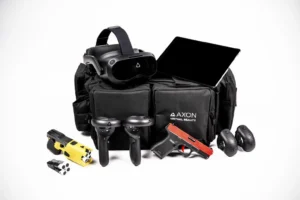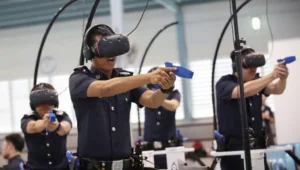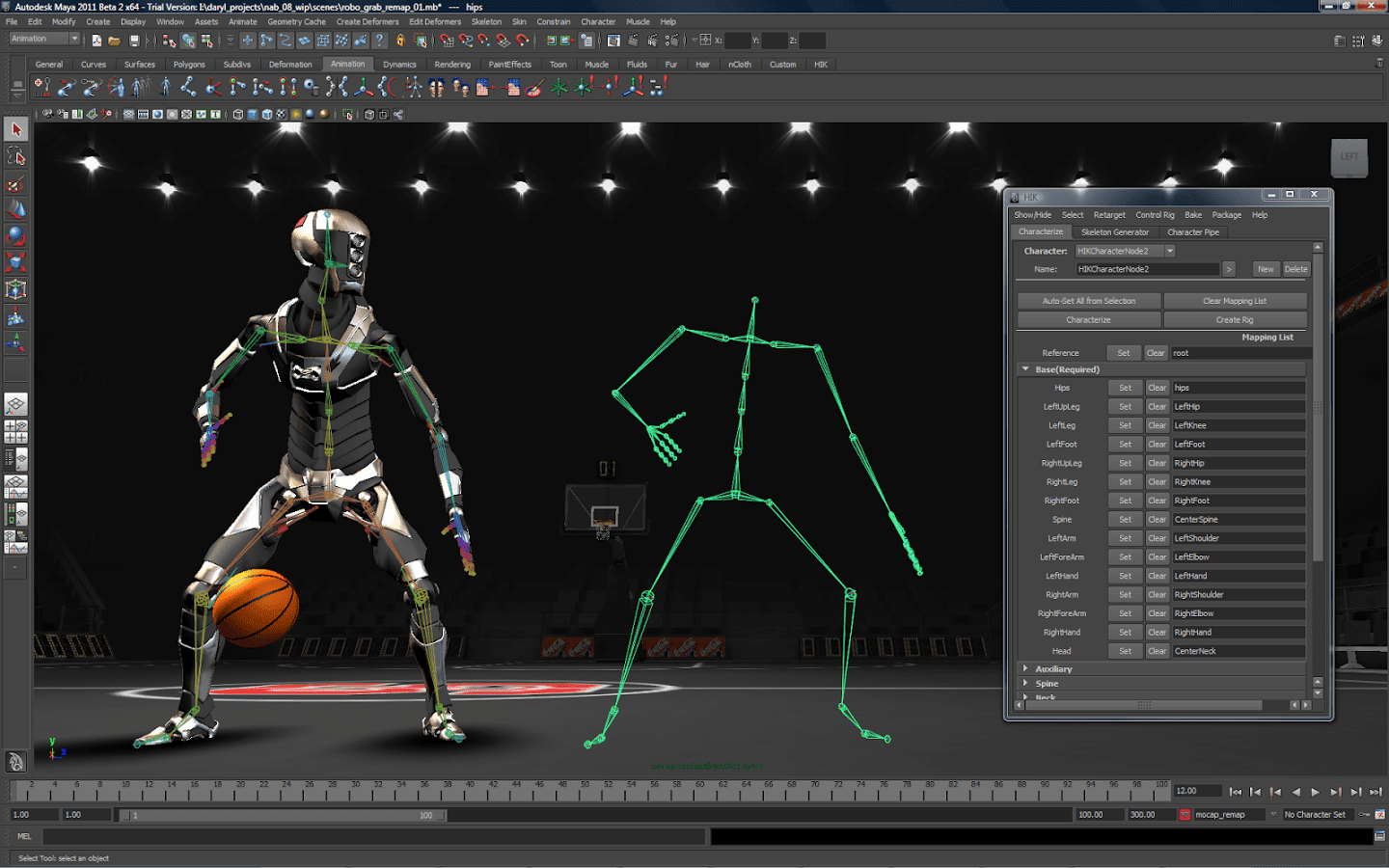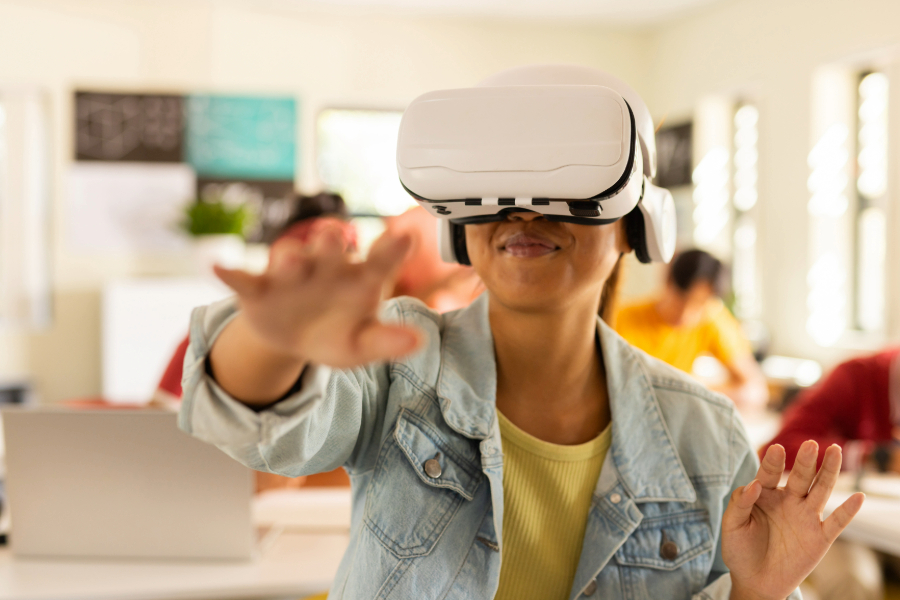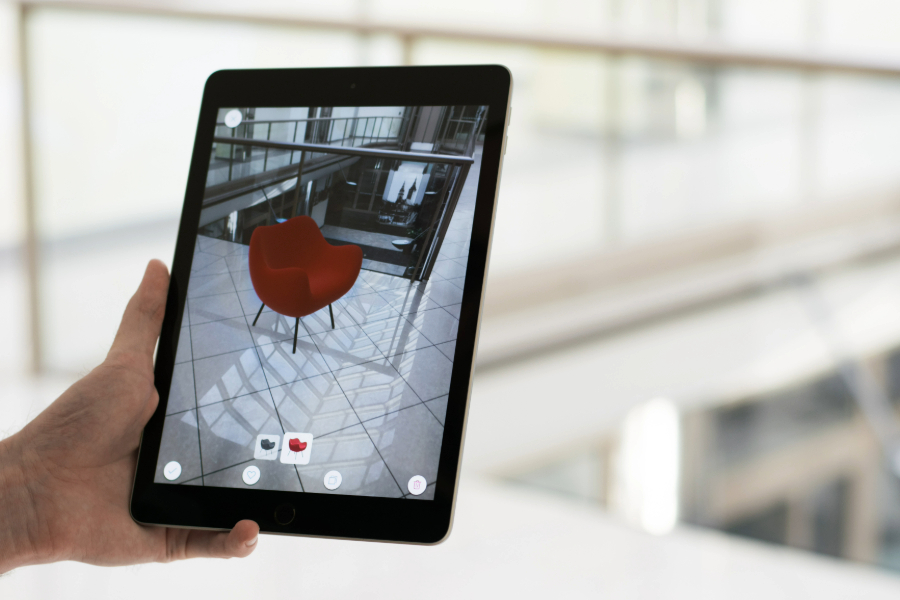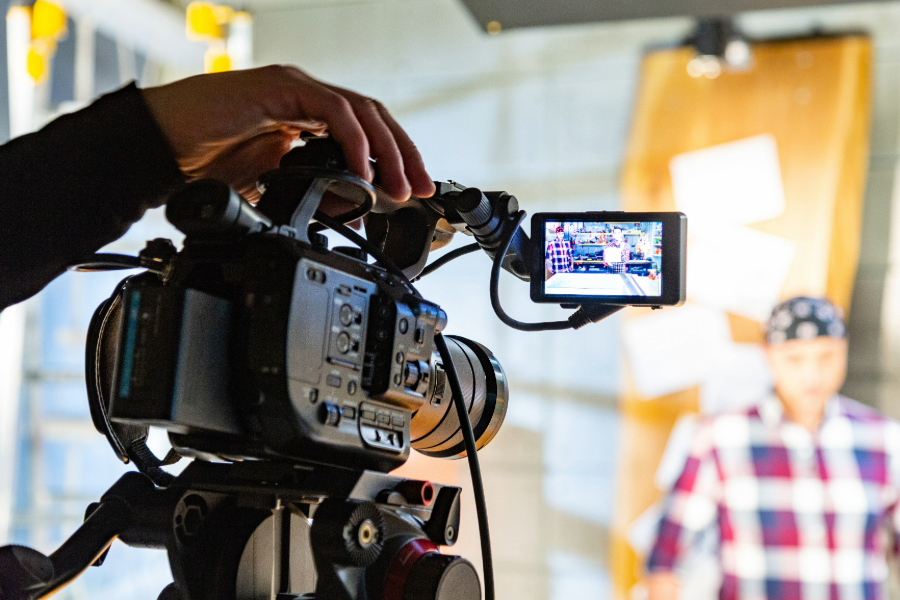VR technology and wrist trackers combine to offer a next-level training program.
Axon, a weapons technology company based out of Arizona, today launched a new VR simulation designed to train law enforcement officers in de-escalation tactics by immersing them in realistic scenarios they may face out in the field. Not only that, but trainees can actually bring their TASER energy weapons and training firearms with them in VR.
Axon’s simulator training is powered by the Vive Focus 3, HTC’s all-in-one VR headset in combination with the company’s Vive Wrist Trackers, which track the position of the user’s hands in VR. 1:1 replicas of these devices are recreated in VR to provide officers with the most realistic experience possible. Users can even hold Axon’s TASER 7 with two hands without the headset losing track thanks to the aforementioned wrist sensors.
“Axon’s VR Simulator Training works together with VIVE Wrist Tracker to bring safer law enforcement one step closer to reality,” said Dan O’Brien, GM Americas at HTC Vive in an official release. “Officers can now use the exact same objects in VR training sessions that they would out in the field. This makes VR training more natural, and ultimately more effective. We’re proud to be working together with Axon to help protect officers and civilians alike with effective VR training solutions.”
The platform is composed of three primary components (as provided by Axon):
- Axon Academy
- Axon Academy houses a library of supplemental e-learning content and training materials designed to strengthen the skills learned in the Community Engagement and Simulator Training scenarios. For trainers, after-action reports stored on Academy provide performance and progress metrics, insight into an officer’s decisions, and new opportunities for coaching and program development.
- Community Engagement Training
- Community Engagement Training focuses on developing skills, empathy, and communication for engaging with individuals in scenarios involving mental health, trauma, peer intervention, and more. Through these experiences, trainees get to understand the perspectives of both the officer and the civilian and see how different modes of communication can result in de-escalation, which can influence calls for service.
- Community Engagement Training focuses on developing skills, empathy, and communication for engaging with individuals in scenarios involving mental health, trauma, peer intervention, and more. Through these experiences, trainees get to understand the perspectives of both the officer and the civilian and see how different modes of communication can result in de-escalation, which can influence calls for service.
- Simulator Training
- Firing Range – Basic: In this scenario, trainees learn safe and effective deployment of weapons. Trainees learn to operate TASER 7 energy weapons and replica training firearms in VR within an indoor range environment, then practice their skills on stationary targets from varying distances to improve accuracy, speed, tactical knowledge, and critical thinking skills.
- Firing Range – Intermediate: In this scenario, trainees deploy the TASER 7 energy weapon from various distances on moving subjects in an outdoor, nighttime setting. This fast-paced exercise helps trainees utilize safety features, recognize proper spread and probe placement on moving subjects, manage clothing disconnects, and achieve higher effectiveness when deploying TASER cartridges.
“We’re thrilled to be HTC’s exclusive partner for incorporating the VIVE Wrist Tracker into Axon’s latest training platform,” added Chris Chin, Axon VP of Immersive Technologies. “Accurate hand tracking is essential to training true-to-life and increasing learning retention, which carries over into the field and ultimately helps make our training more effective.”
This isn’t the first time we’ve seen VR technology used by law enforcement for training purposes. In 2020 we talked about how the Strasburg Police Department in Strasburg, Virginia was using VR technology for crisis de-escalation training. The supplemental training allowed officers the unique opportunity to experience confrontation from the perspective of a civilian.
Axon’s VR simulation training is already being used by the Phoenix Police Department. The company hopes that its technology can provide effective training solutions to law enforcement agencies while reducing the overall cost. The platform can be used anywhere at any time. Instructors can even conduct training sessions remotely with their students regardless of their physical locations.
For more information on Axon’s VR simulation training visit here.
Image Credit: Axon
